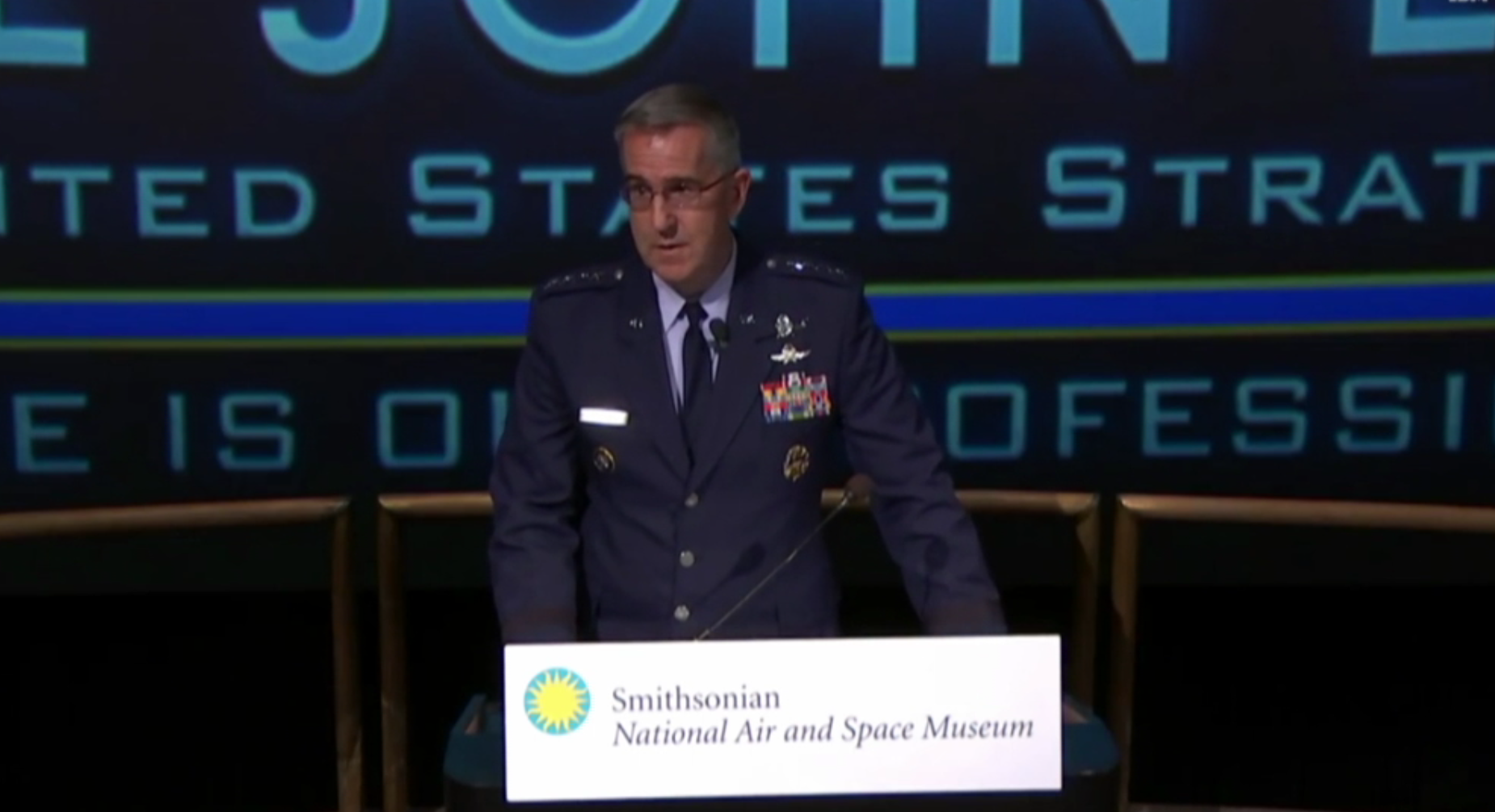
Gen. John Hyten, head of US Strategic Command delivers remarks at the John H. Glenn Lecture in Space History at the Smithsonian Air and Space Museum in Washington, D.C., on Wednesday. Screenshot photo.
US Strategic Command chief Gen. John Hyten Wednesday delivered an impassioned defense of US national security space efforts, speaking to an audience at the Smithsonian Air and Space Museum in Washington.
In remarks he made as part of the annual John H. Glenn Lecture in Space History at the museum, Hyten painted a picture of a changed space environment where, unlike in the past, the US must consider space as a military domain.
Today, he said, as opposed to the Cold War years, the United States faces not just the Soviet Union, but potential adversaries across the globe, saying “China, Russia, North Korea—while we hope that is changing—Iran, violent extremism, we have to deal with all those capabilities.”
Hyten said space has shifted, and is no longer a safe, benign environment, saying this is not the world he would wish for but “the world that is,” and, he said, that world “has threats to our space capabilities, and because it has threats to our space capabilities, we have to be willing to do something about it.”
He pointed to “adversaries in China and Russia that declare openly in their doctrine that they are going to build weapons to destroy our capabilities and to take that advantage away from us.”
He cautioned, though, as he has before, against trying to separate war in space from war in general.
“There’s actually no such thing as war in space, there’s just war,” he told the audience.
However, he said, the US will “build different systems and different ways of doing business and we’re going to build operators that think about space as a war-fighting domain” so that adversaries will not try to contest the US in space. “Because if they do, they realize they will lose, and that will prevent war from expanding into space,” added Hyten.
Space operations and space superiority are not “an American birthright,” he said, adding that both Russia and China “are both challenging” US plans and actions, “that’s why the space mission in the military is a top priority.”